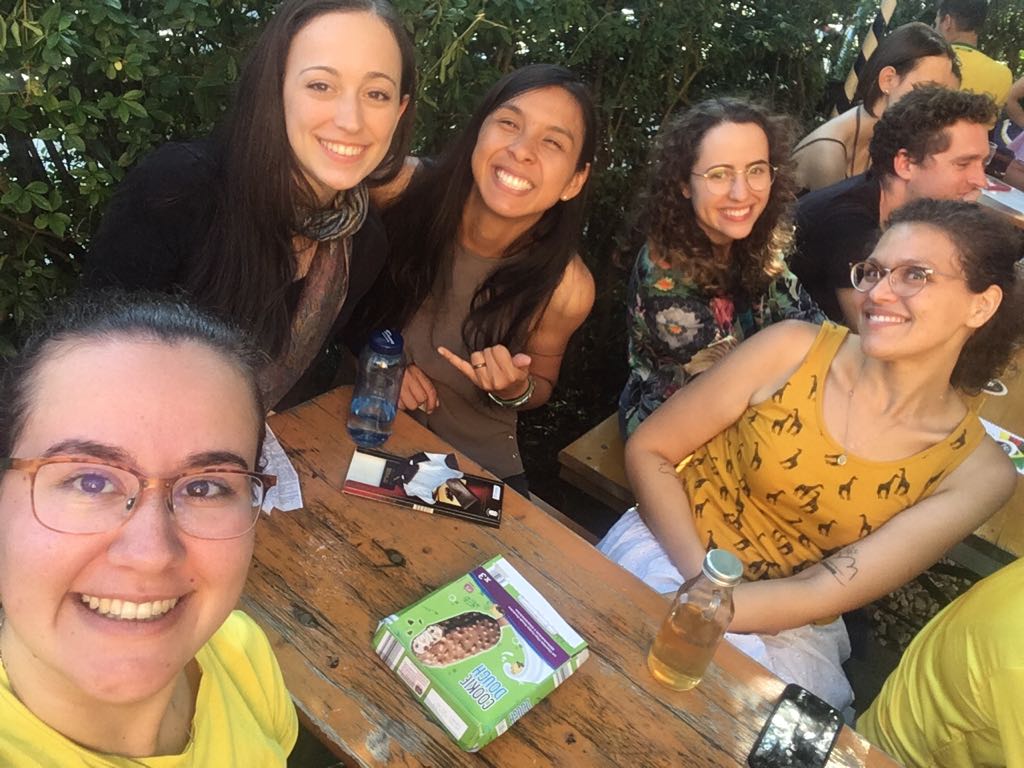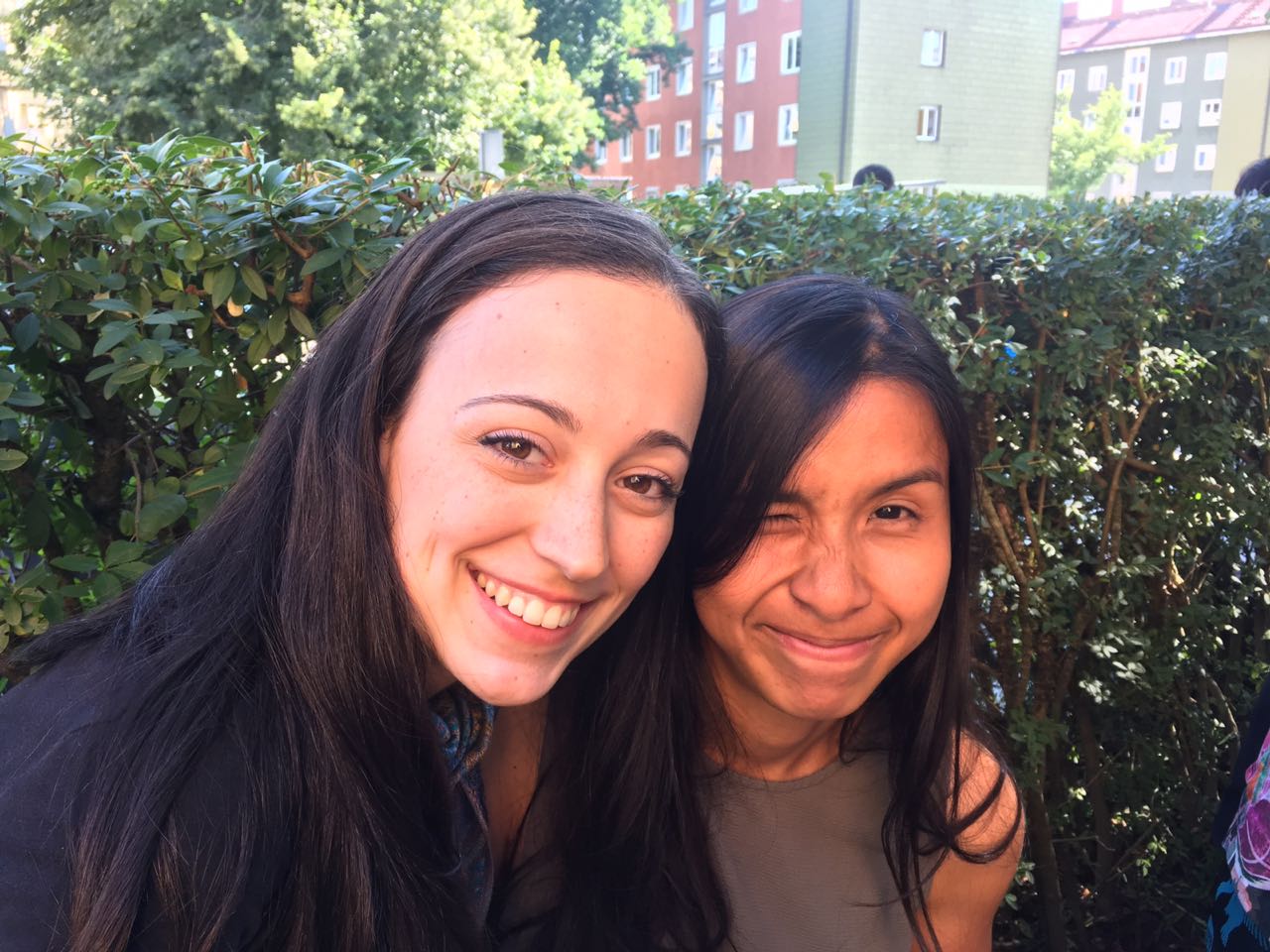Walking by myself in the historical center of Munich, I began to notice the increased frequency of yellow t-shirts around me. I gazed at them, wanting to say something with my eyes: “I too am Brazilian! And I am actually on my way to watch the soccer game too!” Whatever invisible line connected us at that moment, as those who share the same origin and the same exile, wasn’t readily noticed, but it still made me look at them with more affection, as if they weren’t strangers as the rest of tourists and Münchner walking by on that afternoon through Marienplatz.
Arriving at the tram station, I found two other Brazilian friends from my Sprachschule, who were also going to the same Brazilian Biergarten to watch the game. We weren’t very close to one another, but the time spent on that tram, which changed its typical route and was taking longer than it should, made it seem to me that some intimacy was already presupposed, given to us, and not formed by time. In complaining about the change of route, in wanting so much to arrive in time for the game and, specially, once arriving in that sea of yellow t-shirts, typical food, and loud laughter so characteristic of my Heimatland, I felt… What exactly did I feel? Perhaps I felt that I would always be Brazilian, even if my whole life was spent abroad, or perhaps that there was something beautiful about that easiness and light intimacy shared by all who were raised in Brazil. These ideas came to my mind with some surprise: did I even like soccer after all, as most of my friends at home did? At that moment, raising from my seat at each possibility of gol and laughing at the jokes about “Menino Ney,” I think I really did.

And, then, something happened: my Brazilian friends started calling me “a americana” and referring to me whenever any comment about the U.S. was made. They certainly did not deny me any share in that little Brazilian community, but a new dimension was added which contained in itself both their impressions about the U.S. and their impressions about Brazil. How could I express it all in words? The broken history of Brazil, its interrupted democracy, its culture, often drifted by external influences and injured by corruption… All that was present in that afternoon. At that victorious game, though we were celebrating our country, how wouldn’t we notice that we were still out of it! Gazing at the United States, at the stability of its history, at its leading position in the world, and perhaps also at the positions taken by its leader, there was certainly some resentment in their voices as they called me “americana.” It was something subtle and didn’t take away the affection and union that made me leave the Biergarten with warmed heart, but it did make me reflect on the eyes with which the United States is seen, and made me realize (also with joy) that the U.S. was somehow and increasingly becoming my own. In the end, brasileira e americana, (perhaps with the heart a bit in Germany too after these dreamful five weeks), I left the Biergarten thinking about the beauty of these temporary homes given to us in our exile in this world.
